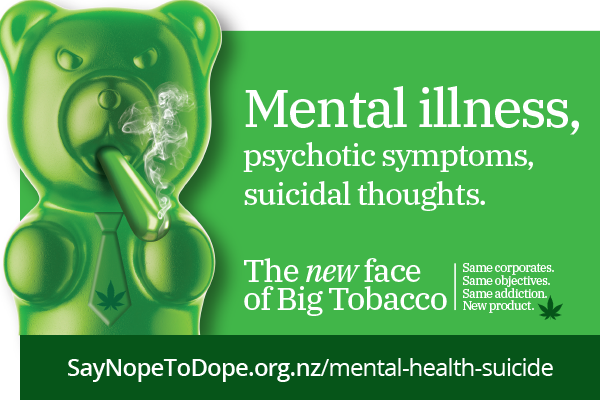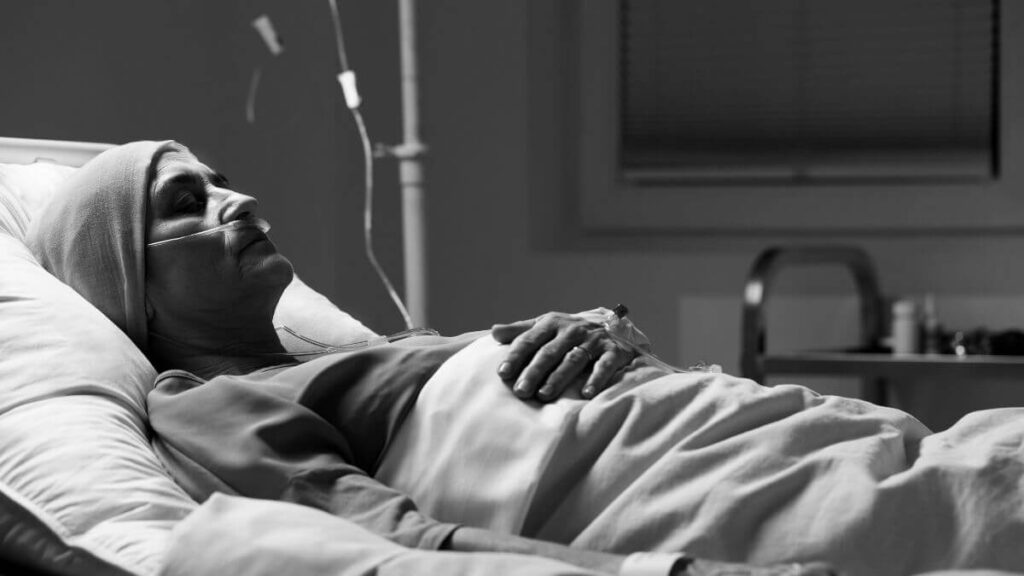Media Release 14 February 2019
Family First NZ says that the latest study on the effects of marijuana prove that New Zealand would be foolish to legalise marijuana in any way, and that the illegality of the drug and other drugs is vital as we fight the devastation its use causes on both the users, their families, and society in general.
The study, published in the latest edition of JAMA Psychiatry summarised 11 studies comprising 23,317 individuals. The research said, “the high prevalence of adolescents consuming cannabis generates a large number of young people who could develop depression and suicidality attributable to cannabis. This is an important public health problem and concern.”
This is consistent with the Christchurch Health and Development Study research which has shown that the use of cannabis was associated with increased risks of a number of adverse outcomes including: educational delay; welfare dependence; increased risks of psychotic symptoms; major depression; increased risks of motor vehicle accidents; increased risks of tobacco use; increased risks of other illicit drug use; and respiratory impairment. These effects were most evident for young (under 18-year-old) users and could not be explained by social demographic and contextual factors associated with cannabis use. Regular or heavy cannabis use was associated with an increased risk of using other illicit drugs, abusing or becoming dependent upon other illicit drugs, and using a wider variety of other illicit drugs.
Research led by the National Drug and Alcohol Research Centre at the University of New South Wales (including New Zealand researchers) analysed results of three large, long-running studies from Australia and New Zealand involving nearly 3,800 people. Teenagers who start smoking cannabis daily before the age of 17 are seven times more likely to commit suicide, the study found.
Colorado toxicology reports show the percentage of adolescent suicide victims testing positive for marijuana has increased since the legalisation of marijuana. This disturbing trend is, unfortunately, not surprising, as daily marijuana use among youth who begin before the age of 17 significantly increases the risk of suicide attempts.
“A sensible drug policy should recognise three pillars – similar to the successful approach towards SmokeFree NZ
- supply reduction – target the dealers and suppliers
- demand reduction – promote a drug-free culture
- harm reduction – ensure addiction services & support are available for those who genuinely want to quit. The primary purpose is not to keep users using, but reduce and help them exit drug use.
A smart arrest policy can both provide a societal stamp of disapproval and provide an opportunity to intervene and stop the progression of use. Keeping marijuana illegal through an appropriate application of the laws that cater for ‘youthful indiscretions’ and which focus on supply and dealers is as much a public safety policy as it is a public health policy,” says Bob McCoskrie, National Director of Family First NZ.
“But at a time when New Zealand’s mental health system is bursting at the seams, we should go no further and legitimise a mind-altering product which will simply add to social harm? It’s patently obvious to most people that legalisation will increase its use, and harm.”
“Drug use is a major health issue, and that’s why the role of the law is so important. This is not a ‘war on drugs’ – this is a defence of our brains and mental well-being. People should always come before profits.””
“If the government is in to a ‘well-being’ budget, legalising marijuana should be nowhere on the agenda.”
ENDS




